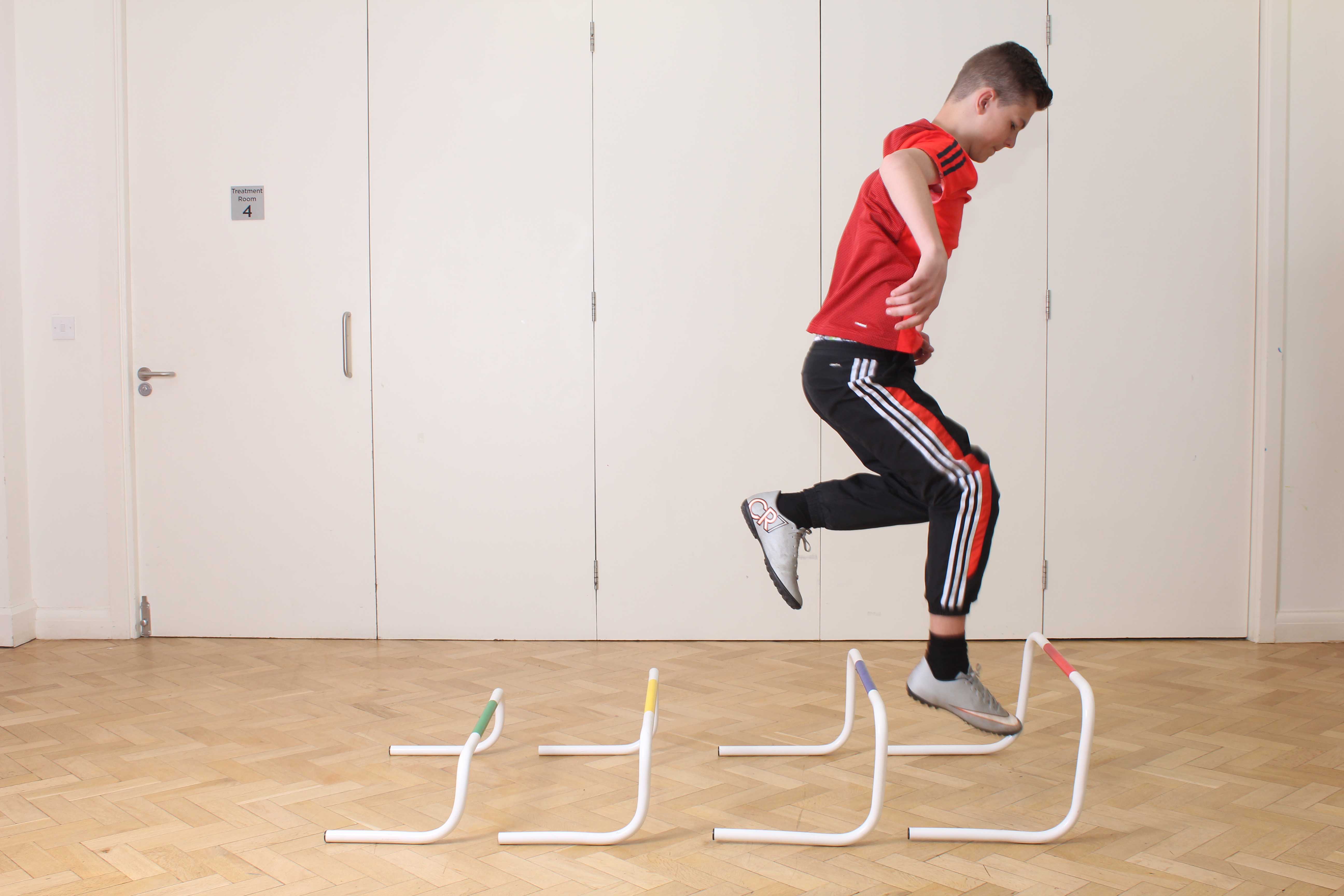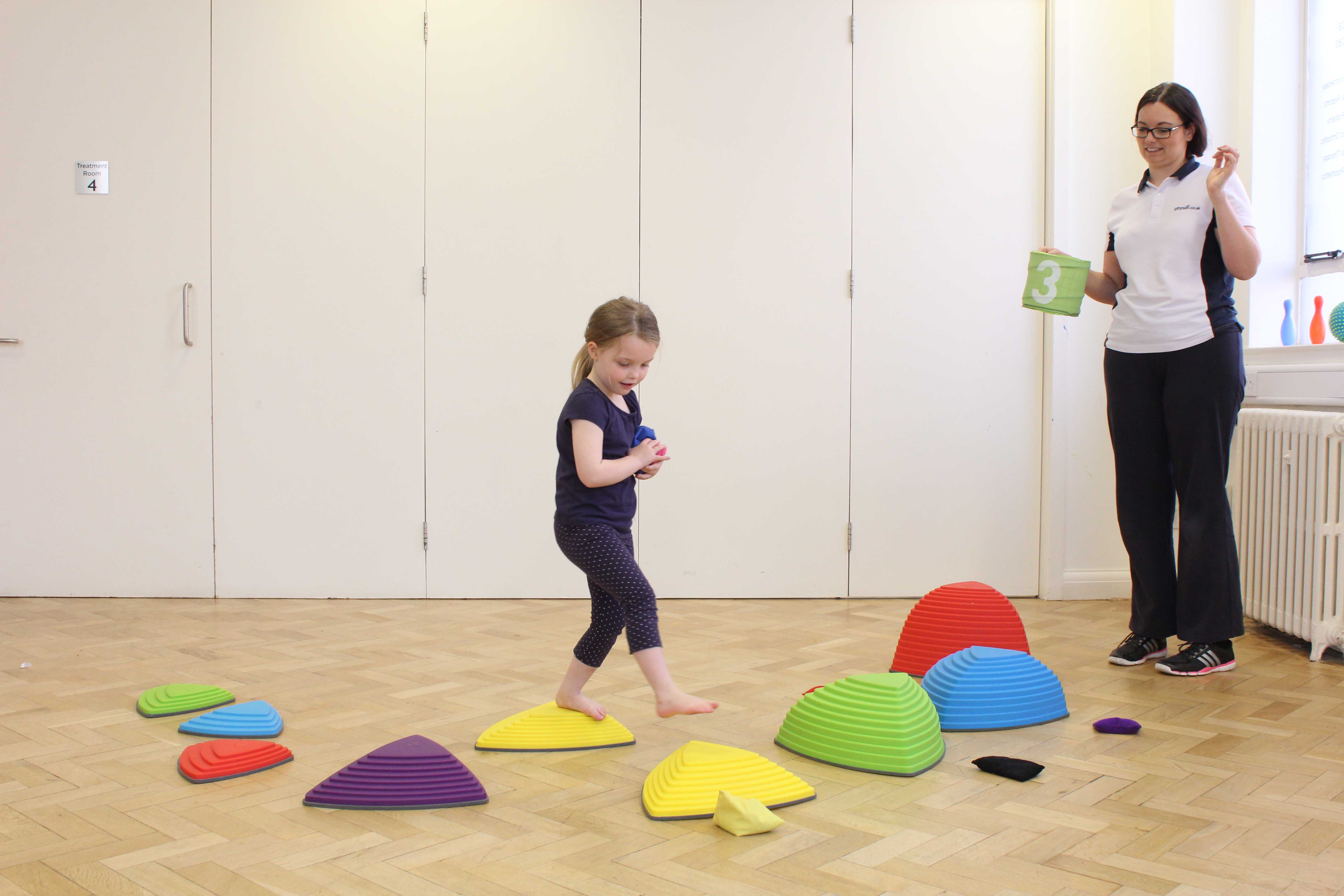What is paediatric reduced exercise tolerance?
Exercise tolerance is the amount of exercise that a child can do until they become too tired to do anymore. This can either be a length of time or the maximum they can do within a certain time. Reduced exercise tolerance is when the child cannot do as much exercise as they should be able to do.
 Above: Testing patients tolerance for exercise
Above: Testing patients tolerance for exercise What causes reduced exercise tolerance in children?
Reduced exercise tolerance can be caused by the child having breathing problems. The muscles used in exercise need oxygen to work and if the child has breathing problems then the muscles cannot get the oxygen they need and they get tired quickly. This reduces the exercise tolerance of the child.
Reduced exercise tolerance can also be caused by the child being unfit and unhealthy. They would have a poor cardiovascular system which means the heart and lungs would struggle to keep up with the demands of the muscles during exercise. This reduces their exercise tolerance.
 Above: Keeping exercise tests challanging and interesting.
Above: Keeping exercise tests challanging and interesting.What are the symptoms of reduced exercise tolerance in children?
Symptoms of reduced exercise tolerance in children include:
- Becoming tired quickly during activities.
- Increased breathing even after light exercise.
- Child feeling weak even after light exercise.
What can physiotherapy do to help children with reduced exercise tolerance?
Physiotherapy treatment is mainly aimed at building the child’s fitness so that their exercise tolerance increases. This can be done through aerobic exercise, such as games involving running, so that their cardiovascular system improves. The treatment is carefully structured so that the exercise is gradually increased to match what the child can safely achieve.
The child is also taught deep, relaxed breathing techniques so that they can slow down their breathing and recover. Advice is also given to the child and their parents or carers on pacing activity so that they are not doing too much at once.
The child and their parents or carers are educated on living a healthy lifestyle including exercise and eating.
What are the benefits of physiotherapy for children with reduced exercise tolerance?
Physiotherapy can help children with reduced exercise in several ways. These can include:
- Improving the child’s fitness so that they can do more activity and for longer periods of time
- Making the child more aware of the activity levels that they can achieve
- Teaching the child not to panic when they feel out of breath
- Improving the child’s general health and reducing the chance of future health problems
Summary
Reduced exercise tolerance is when a child cannot do as much exercise as they should be able to. This is usually caused by breathing problems and this can greatly reduce a child’s activity levels. Physiotherapy is aimed at making breathing easier and building the child’s exercise tolerance. Physiotherapy can help children with reduced exercise tolerance.
To arrange an appointment with Physio.co.uk call now on 0330 088 7800 or for more information please contact us.

 0330 088 7800
0330 088 7800

































